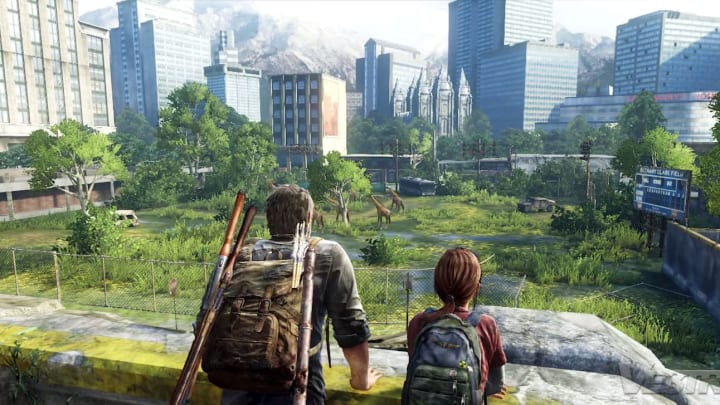The Last of Us Remake in Development Amid Internal Sony Strife

Another The Last of Us remake is in development as Sony continues to divert resources to support its biggest studios, per a Bloomberg report. Sony Bend, meanwhile, is working on a new game after a 2019 pitch for Days Gone 2 was rejected.
Bloomberg's report focuses on turmoil at Sony's smaller studios as they're increasingly made to support projects from larger, more established teams. Sony's Visual Arts Service Group, which Bloomberg describes as the "unsung hero of many hit PlayStation video games," experienced that firsthand when it began work on a remake of The Last of Us.
Sony's prioritization of the biggest games and studios has created ripple effects all across the organization. For example, over the last year Sony's Bend studio, once seen as a rising star, has been assigned to support Naughty Dog and feared becoming Naughty Dog North pic.twitter.com/8qn9kvNrxN
— Jason Schreier (@jasonschreier) April 9, 2021
VASG Founder Michael Mumbauer built a team of 30 developers to work on the remake, codenamed T1X, but Sony refused to offer the team the budget it required to complete the project. Instead, PlayStation Studios head Herman Hulst moved the team to a supporting role on The Last of Us Part II. Once that game was completed, Sony moved several Naughty Dog developers onto the T1X project. The move undermined VASG's ownership of the project, turning it into a de facto Naughty Dog game.
Many of the developers that started work on T1X have now left the company, including Mumbauer.
Elsewhere at Sony, the company's Oregon-based Sony Bend studio attempted to build on the success of its original IP Days Gone by pitching a sequel. Sony rejected the pitch and chose instead to move Bend developers onto a Naughty Dog multiplayer project — likely the standalone multiplayer component for The Last of Us Part II — and a new Uncharted project. Both projects were under Naughty Dog supervision.
The loss of autonomy led many developers at Bend to leave the studio. Leadership at the studio ultimately asked to be reassigned from the Uncharted title, and the studio is now working on a new original game.
Eurogamer reports the Sony Bend Uncharted game might have been a prequel and a light reboot for the series. It's unclear where the project stands now.
Remaking The Last of Us certainly shows business sense. Fans have proven willing to buy just about anything tied to the franchise, and it only stands to grow as its HBO series continues through development. Never mind that The Last of Us first came out as recently as 2013, followed by a Remastered release the next year. It's clear Sony's aim is commercial cash-in rather than preservation, a fact underscored by its shutting down of the PS3, PSP and PS Vita stores later this year.
The remake also highlights how central tentpole exclusives are to Sony's new user acquisition strategy. Games like The Last of Us Part II and God of War have driven millions of console unit sales, and serve as the company's main weapon against competitor Microsoft's Xbox Game Pass offer.
As a result, the company has increasingly cut off resources for its smaller and more niche studios. In addition making VASG and Sony Bend subordinate to larger teams, Sony has all but shuttered its Japan Studio. The studio was responsible for several smaller but well-respected games such as Gravity Rush; now its staff have either left Sony entirely or been absorbed into Astro's Playroom developer Asobi Team.